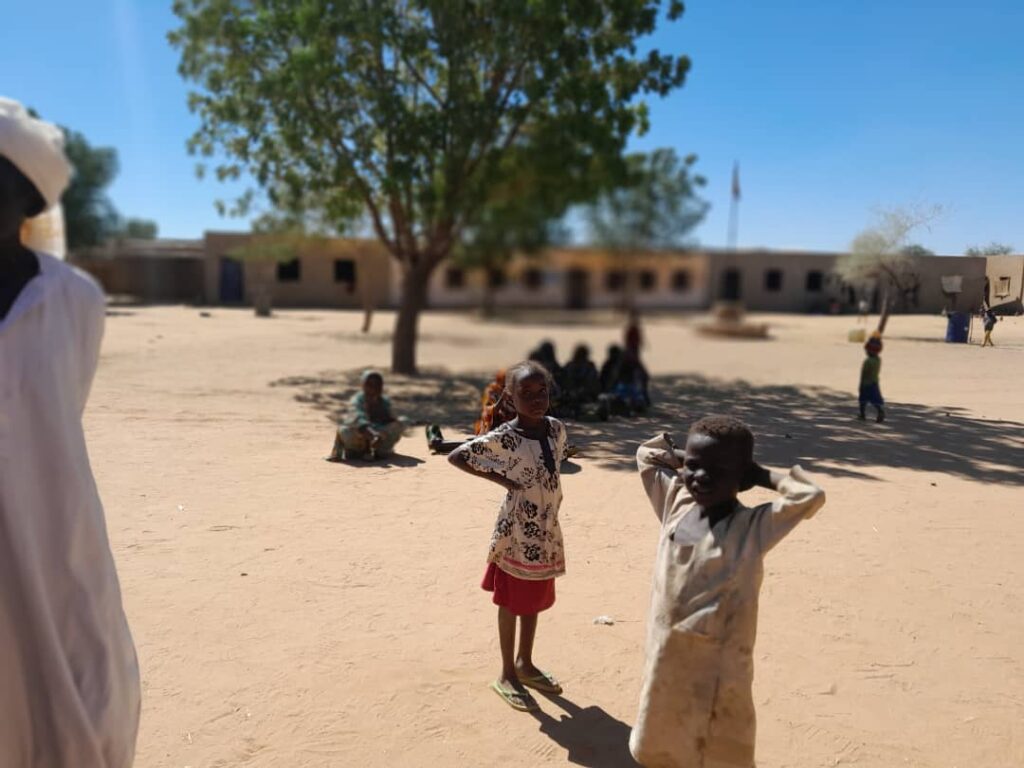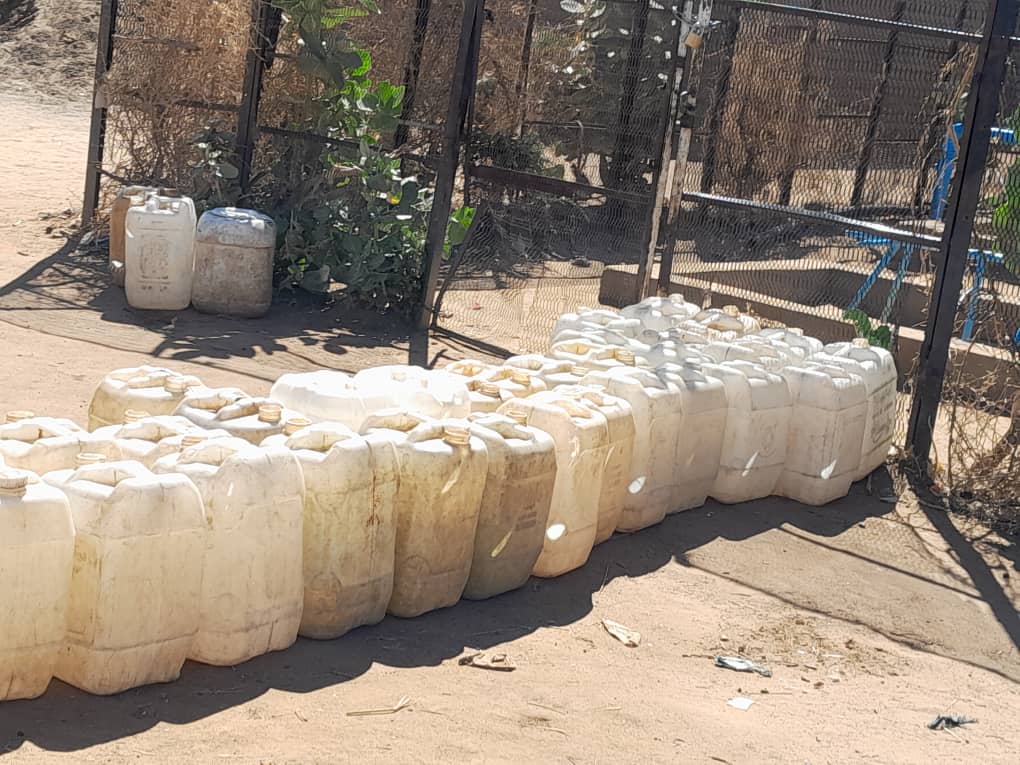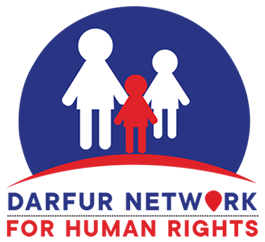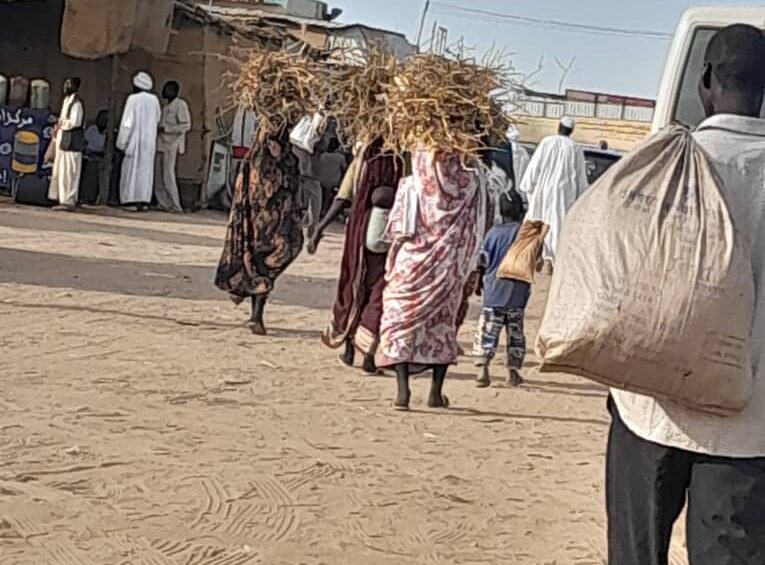Introduction:
(Kampala) – The historically significant city of Al Fashir in North Darfur is embroiled in an intricate and dire humanitarian crisis as a violent conflict tightly grips the region. This comprehensive report aims to delve deeper into the unfolding events and elucidate their profound impact on the local population.
Background:
North Darfur was once the proud capital of the independent Sultanate of Darfur until 1874, when Sudanese warlords invaded and annexed it in Sudan. Making it one of the states of Sudan and making Al Fashir its capital, Al Fashir now stands as a battleground marred by conflict. Beyond its historical significance, the city’s strategic location facilitates dynamic trade, fostering vibrant commerce along its northern border with Libya. Additionally, crucial road connections link Al Fashir directly to four states and Khartoum, amplifying its role as a central hub. The current population is 2,827,155.
The Fur, Masalit, and Zaghawa are the major tribes in the region. North Darfur is the only area in the Darfur region where the Rapid Support Force (RSF) does not have complete control; it only controls approximately thirty percent of the area, specifically the eastern part of the capital city, Al Fashir. The Sudanese Armed Forces (SAF) and allied rebel groups maintain a stronghold over the remaining portion of North Darfur.
North Darfur hosts the second-largest internally displaced population in the country, with an estimated 528,038 IDPs living in camps. Zamzam IDP camp – near the state capital of Al Fashir – is the second-largest IDP camp in Darfur, hosting about 121,000 people according to the International Organization for Migration (IOM)
Outbreak of conflict:
The eruption of war in Khartoum on April 15, 2023, led to internal turmoil within the Sudanese Armed Forces (SAF) headquarters in Al Fashir. The Rapid Support Force (RSF), a formidable ally of SAF since 2016 operating from the SAF headquarters, engaged in a fierce internal battle. This conflict resulted in SAF’s eventual victory, prompting RSF’s retreat to El Malha and Abu Shouk camps.


Escalation and civilian displacement:
In the aftermath, the relentless shelling of RSF-occupied areas by SAF triggered widespread civilian displacement from locations such as Al Qaramik, Ishlak, and el-Ghaba. A significant clash on April 17 underscored the escalating violence, with tragic civilian casualties reported, including Yusuf Hamid’s family and local singer Yusuf’s daughters.
Peace efforts and fragile ceasefire:
Leaders from the community, legal experts, and activists, guided by Governor Nimir Mohammed Abdel Rahman, intervened to broker a temporary ceasefire. However, renewed hostilities on April 19 resulted in further civilian casualties, prompting a compromise to maintain peace until the end of Ramadan, which was from April 20 to May 12.
The conclusion of Ramadan has sadly witnessed a resurgence in the conflict gripping Al Fashir, marking a distressing turn of events. The Rapid Support Force (RSF) has seized control of the east, while the Sudanese Armed Forces (SAF) fortified their hold over the west. This intensified conflict has catalysed a profound humanitarian crisis, amplifying the challenges faced by the already beleaguered population.
Acute food shortages and soaring prices:
Due to the ongoing war, Al Fashir is grappling with an acute shortage of food, plunging the community into a state of dire need. The situation is exacerbated by soaring food prices, making essential commodities increasingly unaffordable for the majority of the population. Al Mawashi, a small market located in the south of Al Fashir, continues to operate, albeit with significant challenges. The market, once a lifeline for residents, is now a testament to the harsh realities faced by the community.
Skyrocketing food prices:
The impact on food prices has been drastic, with the cost of essential items reaching unprecedented levels. Currently, one malwa (a local measurement unit which is approximately 2kgs and 300 grams) of grain is priced at around 1500 Sudanese pounds (USD 2.50), placing a heavy burden on the financial capacities of the local residents. Similarly, the cost of one litre of cooking oil has surged to approximately 1400 Sudanese pounds (USD 2.33). This alarming escalation in prices has left the majority of families unable to afford basic necessities, creating a distressing scenario.


Worsening malnutrition and lack of international aid:
The financial strain inflicted by exorbitant food prices has resulted in a widespread crisis of malnutrition in the region. Only a handful of families, fortunate enough to still possess some financial resources, can afford to meet their nutritional needs. The majority, however, face the harsh reality of inadequate access to food, leading to severe malnutrition.
Adding to the dire situation is the absence of international aid for internally displaced persons (IDPs). Al Mawashi market, a vital source of sustenance for many, struggles to meet the demands of the population due to the lack of support from international organisations. This absence compounds the challenges faced by those already displaced and vulnerable, leaving them without the critical assistance needed to survive.
Healthcare challenges:
The healthcare system is grappling with critical shortages, as only two operational hospitals attempt to meet overwhelming demand. SAF’s control over one hospital limits civilian access, while the emergency centre in Nifasha camp, operated by Relief International, provides only basic medical aid.
Security concerns and civilian casualties:
Security in Al Fashir remains a grave and persistent concern, with the civilian population enduring the brunt of escalating violence and lawlessness. The volatile situation extends from the city into the camps, creating an environment of fear and vulnerability for all residents.
Incident at Nifasha Camp – December 16:
On December 16, the already precarious security situation took a tragic turn when a group of Rapid Support Force (RSF) soldiers targeted the Nifasha camp. This reprehensible act resulted in looting and, even more distressingly, the senseless shooting of civilians. Among the victims were 48-year-old Ahmed Hussain Mohammed, 35-year-old Taha Adouma Isaq, and 35-year-old Abdul Latif Younis Adam. These heart-wrenching incidents highlight the indiscriminate violence inflicted upon innocent lives within the camps.
Clashes inside the Nifasha Camp – February 7, 2024:
The security situation further deteriorated on February 7, 2024, when a clash erupted between RSF and Sudanese Armed Forces (SAF) north of Nifasha camp. This clash resulted in injuries to numerous civilians, once again emphasising the ongoing threat to civilian lives and safety. The clash not only deepened the atmosphere of fear but also demonstrated the precariousness of the security conditions within and around the camps.
These distressing incidents underscore the urgent need for enhanced security measures to safeguard the lives of civilians, both within the camps and throughout the city of Al Fashir. The unabated violence perpetrated by armed forces poses a direct threat to the safety and well-being of the population, leaving them in a constant state of vulnerability.
DNHR’s remark and appeal:
The current situation in Al Fashir, as detailed in the comprehensive report, demands our immediate attention and collective action. The unfolding events depict a dire humanitarian crisis marked by escalating violence, widespread displacement, and severe suffering among the civilian population. The once-historically significant city is now the epicentre of a conflict that continues to intensify, leaving families torn apart, communities shattered, and lives lost.
In light of the alarming developments, DNHR urgently appeals to the international community and human rights organisations to intervene and address the urgent needs of the affected population in Al Fashir. The gravity of the crisis necessitates swift and decisive action to prevent further loss of life and alleviate the suffering of those caught in the crossfire.
The urgency for humanitarian assistance cannot be overstated, demanding immediate relief through vital supplies such as food, medical resources, and shelter. Establishing unimpeded access to healthcare and essential services for the affected civilians is imperative, emphasising the need for medical facilities and personnel in the region.
Simultaneously, the protection of civilians must be prioritised through enhanced security measures in conflict zones to curb violence and prevent further civilian casualties. Creating safe humanitarian corridors is essential to facilitate aid delivery and shield vulnerable populations from the devastating impacts of the crisis. Diplomatic efforts are pivotal, urging engagement in peaceful resolutions through negotiations and dialogue between conflicting parties. International monitoring and intervention are crucial to uphold international humanitarian law and safeguard the rights of civilians. Media attention is a powerful tool in this endeavour, with a call to raise global awareness about the crisis in Al Fashir, garnering support for urgent intervention and humanitarian aid. Encouraging international media outlets to document and report atrocities is vital for holding perpetrators accountable.
As the situation in Al Fashir deteriorates rapidly, the Darfur Network for Human Rights appeals fervently to the international community. A swift and decisive response is needed to demonstrate solidarity and compassion for the innocent lives caught in the crossfire. Collaborative efforts are essential to bring immediate relief to those in desperate need and work toward a sustainable and peaceful resolution in Al Fashir.

